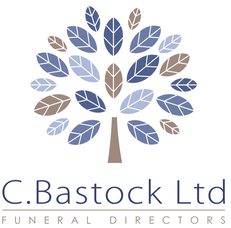The information below is supplied by Sydney Mitchel Solicitors. If you are unsure of what to do next, please give them a call on 0121 698 2200
and they will happily give you some initial free help and advice.
The term 'probate' is commonly used to describe the process of administering the estate of someone who has died.
There are various processes to go through so that you can deal with the deceased's affairs.
For example, you may need to:
If the person who died left a will
The will names one or more executors to deal with the person's affairs.
The executor(s) will therefore apply to the probate registry for a grant of probate. The grant is a legal document that confirms that the executor has legal authority to deal with and distribute the deceased's property.
If the person who died did not leave a will
A close relative will need to apply to the probate registry to deal with the estate. (The rules of intestacy will dictate who can act)
If there is no will they must apply for a 'grant of letters of administration'. If this is granted they will then become known as the Administrator of the estate.
The 'grant of letters of administration' is the legal document which then allows the 'administrators' to deal with the deceased's assets.
If you are unsure if a Last Will and Testament exisits you can check with the National Will Register here
Grant of Probate
A 'grant of probate' or a 'grant of letters of administration' is usually required where the deceased:
One or all of the executors of an estate can apply for a grant of probate.
The forms that are required will depend on where the deceased lived and the value and make up of their estate.
Two points worth noting are that:
and they will happily give you some initial free help and advice.
The term 'probate' is commonly used to describe the process of administering the estate of someone who has died.
There are various processes to go through so that you can deal with the deceased's affairs.
For example, you may need to:
- Ascertain and collect the assets
- Calculate and pay inheritance tax and other debts owed
- Deal with HMRC in connection with income tax
- Distribute their estate in accordance with their will or the rules of intestacy
If the person who died left a will
The will names one or more executors to deal with the person's affairs.
The executor(s) will therefore apply to the probate registry for a grant of probate. The grant is a legal document that confirms that the executor has legal authority to deal with and distribute the deceased's property.
If the person who died did not leave a will
A close relative will need to apply to the probate registry to deal with the estate. (The rules of intestacy will dictate who can act)
If there is no will they must apply for a 'grant of letters of administration'. If this is granted they will then become known as the Administrator of the estate.
The 'grant of letters of administration' is the legal document which then allows the 'administrators' to deal with the deceased's assets.
If you are unsure if a Last Will and Testament exisits you can check with the National Will Register here
Grant of Probate
A 'grant of probate' or a 'grant of letters of administration' is usually required where the deceased:
- Leaves an estate which has a value of £5,000 or more
- Owned insurance policies which are not held in trust
- Held shares
- Held property/land in their own name or held as a tenant in common
- Had an estate worth less than £5,000 (some banks or building societies may set their limits higher)
- Owned everything jointly and everything passes to the remaining joint owner
One or all of the executors of an estate can apply for a grant of probate.
The forms that are required will depend on where the deceased lived and the value and make up of their estate.
Two points worth noting are that:
- There is a fee to pay to the Probate Registry to obtain the grant (if the estate value is over £5,000)
- Probate will not be granted until some or all the inheritance tax due on the estate has been paid
